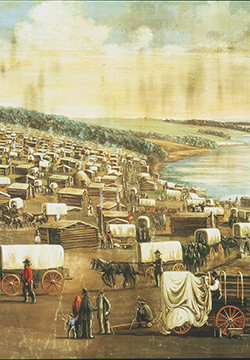May 15, 1837
Foster v. Johnson, Johnson, Smith and Smith: Luke and Lyman E. Johnson signed a promissory note to pay William Foster by December 1, 1838. At some time the note was endorsed by Hyrum and Joseph Smith.

Read peer-reviewed articles about Joseph Smith and other Church history topics from BYU Studies. Visit byustudies.byu.edu.